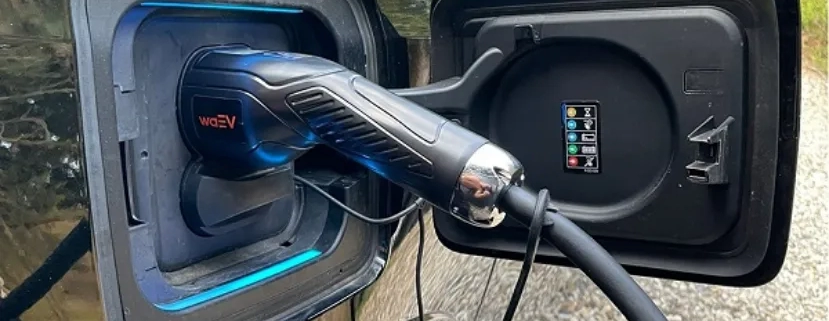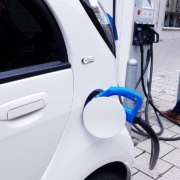How to Make Money with Electric Vehicle Charging Stations
2023 saw continued success for the electric car market. Cox Automotive’s Kelley Blue Book reported 1.2 million electric vehicle sales in the U.S. alone while sales in China saw an incredible 24.6% year-on-year surge (according to data from China Association of Automobile Manufacturers). Electric vehicles have quickly become an attractive commodity among both consumers and businesses alike.
Operating an electric vehicle charging station can be a lucrative opportunity for entrepreneurs seeking to enter the market of electric vehicles. But how do you make money with them? In this article, we explore various feasibility considerations and methods of making money through charging stations so that businesses and drivers alike may gain a deeper understanding of electric vehicles.
Charging Stations Are Vital
An effective charging infrastructure is key to the expansion of electric vehicle use. Convenient EV charging stations allow drivers to quickly charge up their EVs at any time or place, even on motorways. Therefore, many cities have installed charging posts in communities, shopping malls, workplaces, hospitals, and other places where people gather so that people’s daily charging needs can be met. Furthermore, various EV charger providers offer different charging solutions at various destinations where drivers travel such as scenic spots and holiday resorts.
Charging stations help reduce our dependence on traditional fuels. Electric cars use electricity instead, creating greater sustainability.
How can electric car charging stations make money?
-
Attracting Customers with Electric Vehicle Charging Stations
Electric car charging stations can generate significant revenues by drawing in customers in high-traffic areas such as shopping centers and business districts as well as major highways. Establishing these stations near them can draw in drivers to them while simultaneously increasing foot traffic to local businesses who install charging stations in their car parks, creating partnerships and expanding foot traffic to their business.
-
Generate Potential Revenue
Operators can explore additional revenue streams beyond direct EV charging services revenue generation. People drawn to EV charging stations can be potential customers for nearby retail shops and shopping malls; stopping their cars in car parks means more potential customers for these venues.
Thus, EV charging station operators may team up with retailers for increased potential revenue.
How should operators select EV charging stations for their businesses?
Since electric vehicles are becoming increasingly popular, charging stations can be an attractive business venture. Selecting appropriate EV charging stations and chargers for your operation is vital – here are some helpful guidelines to make informed decisions when selecting charging station equipment.
Recent years have seen many EV charger manufacturers create various power and types of chargers; with so much choice out there, how can you select an appropriate EV charging station for your business?
-
Understand Market Demand and Trends
Before selecting an electric vehicle charging device, operators should conduct extensive market research. With so many EV models currently on the market and technological innovations advancing at an alarming rate, operators need to carefully consider if their chosen equipment can accommodate diverse car models and charging standards in various countries and regions. For instance, EV chargers differ depending on these regional differences in charging protocols for EV chargers.
-
Consider Charging Power and Speed
AC EVs such as those supported by Level 1 AC charging stations tend to take longer to charge, with typically 120V and 15A charged providing approximately 1.8kW charging power; they can usually be found plugged into standard household electrical outlets (typically NEMA 5-15 outlets). Level 2 charging stations offer greater power – typically providing 240V with 30A at 7.2-22kW of charging capacity – so they could potentially provide quicker charges.
Level 3 DC charging stations generally utilize direct current (DC), providing higher power and faster charging speeds than their AC counterparts. They’re an invaluable asset in high-traffic areas where DC fast charging can improve user flow rates; however, different EV models have different power acceptance requirements, meaning EV pile operators should select charging equipment that matches demand as well as is compatible with user groups they’re targeting.
-
Select Reliable and Durable EV Chargers
Operators can select durable yet professional charging equipment to ensure long-term operational reliability, such as Joint’s wholesale EV charger wholesaler service. A professional company such as Joint will offer customers top-quality charging equipment as well as innovative charging solutions – durable equipment is key for providing customers with a stable service experience and keeping maintenance costs at a minimum.
-
Support Electronic Payment and User Authentication
In order to offer convenient charging services, operators should use equipment that accommodates multiple electronic payment methods as well as user authentication security measures. EV chargers supporting mobile phone apps or RFID payments could be good examples. More convenient payments and authentication mechanisms can increase user satisfaction as well as increase service attractiveness.
Conclusion
Recently, operating electric vehicle charging stations has opened many companies up to lucrative business opportunities. By drawing customers in, increasing potential revenue, and developing effective pricing models, operators can build successful charging station businesses. If you are starting up an EV charging station business yourself, seek advice from Joint. As an original equipment Manufacturer (OEM), Joint offers professional charging equipment as well as efficient charging solutions designed to help ensure its success.






Leave a Reply
Want to join the discussion?Feel free to contribute!